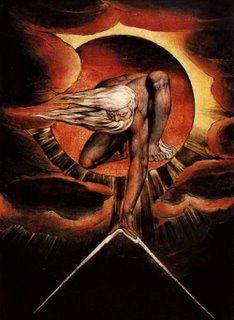
Modern Date : November 27th
Ante Diem V Kalendas December
Fifth Day to the Kalends of December
This is one of the dies comitiales when committees of citizens could vote on political or criminal matters.
Cicero's father died this day in 67 BCE.
This was the day when, in 45 BCE, Octavian (Augustus) defeated Mark Antony in the sea battle at Alexandria, and after which Antony and Cleopatra committed suicide.
The Triumvirate, with Octavian, Antony, and Lepidus, began this day in 43 BCE.
On this day in 8 BCE, the great Roman poet Horace died in Rome.
On this day in 176 AD the emperor Marcus Aurelius celebrated his triumph in Rome, and bestowed the name of Imperator on his son Commodus.
On this day in 602 AD, Phocas was declared emperor by Byzantine troops.
This day was Choiak 1 (Macedonian Peritus 1), the first day of the month Choiak in the Egyptian calendar.
November is the ninth month (after March) and is a lucky month which is almost free of religious obligation.
Advent
In the Christian calendar, this is the First Sunday of Advent, and begins the ritual cycle in which the solemnities of light emerging from darkness will herald the birth of the Savior. He will be born this year a week after the Fourth Sunday of Advent.
This Christian ceremony cycle has largely superseded the ancient local rites in most Western "developed" countries. The entire three-week period leading to and including the birth of the Solar Child on 12/25 is celebrated all over the Northern hemisphere in countless festivals of light, among them Lux Mundi (12/10), St. Lucy's Day (12/13) and Hanukkah (12/25 - 1/1).
In the pagan tradition, it is celebrated on the four Sundays preceding Winter Solstice. This year both coincide.
The period of Advent, which means "to come," is the period of waiting for the birth of Christ at Christmas, or for the birth of the sun at Winter Solstice. It is a period of anticipation, of looking forward.
The main quality of Advent is waiting. If it were a tarot card, it would be the Seven of Pentacles. At this time we are unable to do anything but wait through the growing darkness until we can celebrate the return of the Light. Most Advent customs have to do with marking time: lighting one candle on the Advent wreath each week, opening another door on the Advent calendar. These markers show us in a concrete way how much time has passed and how much time is left before the event we so joyously anticipate.
William Blake.
This day is also the birthday (1757) of the English mystical artist and poet William Blake. Blake was a British poet, painter, visionary mystic, and engraver, who illustrated and printed his own books. Blake proclaimed the supremacy of the imagination over the rationalism and materialism of the 18th- century. Misunderstanding shadowed his career as a writer and artist and it was left to later generations to recognize his importance.
Blake was born in London, where he spent most of his life. His father was a successful London hosier who encouraged Blake's artistic talents. Blake was first educated at home, chiefly by his mother. In 1767 he was sent to Henry Pars' drawing school. Blake has recorded that from his early years, he experienced visions of angels and ghostly monks and that he saw and conversed with the angel Gabriel, the Virgin Mary, and various historical figures.
At the age of 14 Blake was apprenticed for seven years to the engraver James Basire. Gothic art and architecture influenced him deeply. In 1783 he married Catherine Boucher, the daughter of a market gardener. Blake taught her to draw and paint and she assisted him devoutly.
Blake's first book of poems, Poetical Sketches, appeared in 1783 and was followed by Songs of Innocence (1789), and Songs of Experience (1794). His most famous poem "The Tyger", was part of his Songs of Experience. In these works the world is seen from a child's point of view, but they also function as parables of adult experience.
Blake engraved and published most of his major works himself. Famous among his "Prophetic Books" are The Book of Thel(1789) The Marriage of Heaven and Hell,(1790) The Book of Urizen,(1794) America(1793), Milton(1804-8)and Jerusalem.(1804-20).In the "Prophetic Books", Blake expressed his lifelong concern with the struggle of the soul to free its natural energies from reason and organized religion. Among Blake's later artistic works are drawings and engravings for Dante's Divine Comedy and the 21 illustrations to the book of Job, which was completed when he was almost 70 years old.
Blake never shook off his economic poverty, which was in a large part due to his inability to compete in the highly competitive field of engraving and his expensive invention that enabled him to design illustrations and print words at the same time. However, independent throughout his life, Blake left no debts at his death on August 12, 1827. He was buried in an unmarked grave at the public cemetery of Bunhill Fields. Though generally dismissed as an eccentric during his lifetime, posterity rediscovered Blake and today he is highly rated both as a poet and artist.


